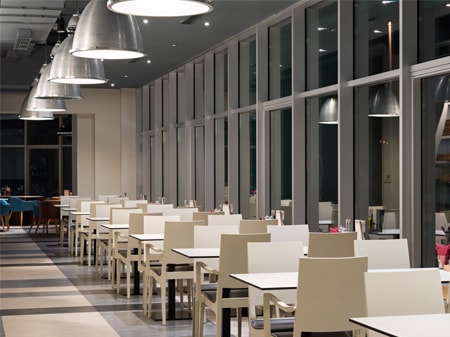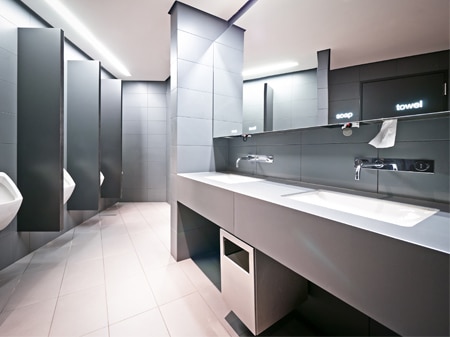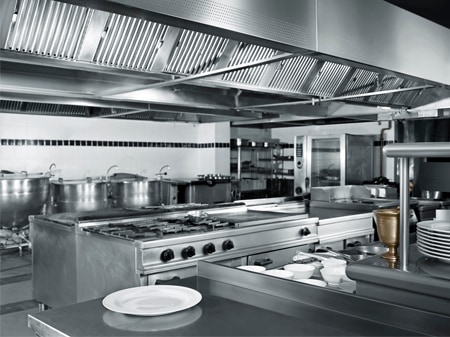
Restaurant and kitchen cleaning with Vileda Professional
Food safety and hygiene: Keeping your business healthy
Maintaining maximum levels of hygiene and food safety in restaurants, kitchens and catering facilities is paramount for the long-term performance and reputation of your business. Not only to keep the customers healthy and happy, but to improve cooking standards and staff wellbeing.
However, it is not an easy task to live up to the extremely high demands of the food industry. Laws and regulations impact the restaurant and catering business, both national and European.
To meet these regulations while ensuring efficiency five factors are crucial:
- A rational and effective hygiene plan
- Modern cleaning methods that meet the specific needs of your operation
- A complete range of high-quality, colour-coded utensils
- Comprehensive staff trainings
- Durable or single-use microfibre cleaning
Under consideration of your specific needs we can create a tailor-made cleaning and hygiene plan that will fit and support your HACCP (Hazard Analysis and Critical Control Points) global plan. Contact us directly and allow us to advise you.
Choose your area
HACCP compliant cleaning of food processing areas
Cleaning with maximum efficiency: Keeping up with the pace
Whether restaurants or canteens – in the food business you are increasingly under pressure to turn tables around and clean floors and above the floor surfaces as quickly as possible without sacrificing quality or impacting the customer experience. The same is true for the cleaning of food corners in supermarkets: Maintaining the hygiene or cleaning up spillages is a question of speed. But there is a difference between cleaning fast and cleaning effectively.
To meet today’s expectations in food safety, our engineers have created user-friendly and easy-to-understand product systems and cleaning methods for restaurants and kitchens that can speed up your performance dramatically. The result: Better hygiene in less time and with less effort.
The right cleaning products for restaurants and kitchens: Keeping unwanted visitors out
Professional kitchens are demanding environments with several potential hazards. Therefore, personal safety goes hand in hand with food safety and hygiene.
Safety floors for example, need special cleaning methods to stay tidy and safe. The implementation of systematic cleaning is therefore a vital HACCP requirement. Preventing cross-contamination is another critical aspect of food safety. The most basic way to avoid cross-contamination is to keep raw and ready-to-eat food separated and to use dedicated, colour-coded utensils for cleaning.
We offer microfibre mops and cloths that effectively remove up to 99.9% of bacteria without use of chemicals in kitchens and other areas of food processing as well as colour-coded cloths which have been shown to support a systematic hygienic cleaning approach.
Commonly utilised single-use non-microfibre solutions don’t meet the challenges of the industry. Whereas switching to microfibre can reduce waste, chemicals and costs.
Deep cleaning, spot cleaning, spillage pick-up – whatever the need is, we have a solution for fast, effective and hygienic cleaning.


